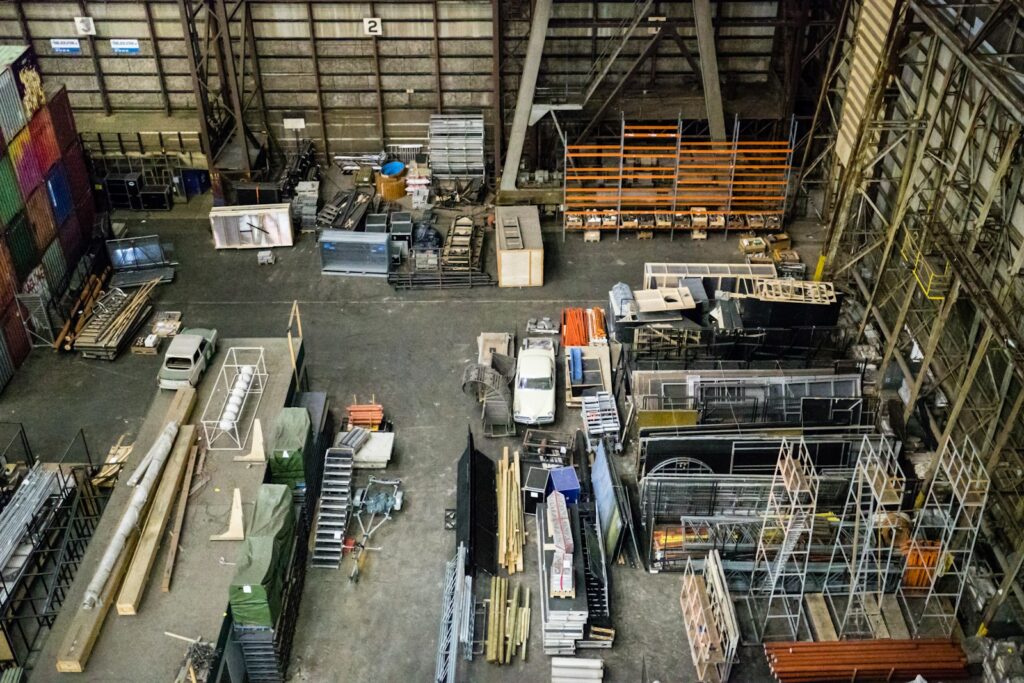
Manufacturing in Nigeria requires compliance with several regulatory regimes that ensure the quality of the product, safety for consumption, and protection of the environment. This guide describes critical steps, requirements, and regulatory bodies required to obtain a manufacturing license in Nigeria.
Why is a Manufacturing License Necessary?
The following are some important reasons why obtaining a manufacturing license is necessary:
1. Regulatory Compliance: It helps your business stay in compliance with government policies and legal standards.
2. Consumer Trust: Certified products help to establish credibility and gain consumer confidence in the quality of your product.
3. International Market Access: Conformity with global standards provides access to international trade.
Conversely, not obtaining licenses can lead to serious repercussions, which include heavy fines, shutdowns, and damage to one’s reputation.
Key Regulatory Bodies for Manufacturing in Nigeria
The nature of the products made determines the various agencies that undertake the regulation of manufacturing activities. The key regulatory bodies involved in this process include:
• Corporate Affairs Commission (CAC): Business Registration
• National Agency for Food and Drug Administration and Control (NAFDAC): Consumable goods: food, beverages, cosmetics, and pharmaceuticals
• Standards Organisation of Nigeria (SON): Product quality and safety standards
• Federal Ministry of Environment: Environmental impact assessment.
• National Environmental Standards and Regulations Enforcement Agency (NESREA): Ensures compliance with environmental regulations.
•Nigeria Export Processing Zones Authority (NEPZA): Regulates manufacturing in export-oriented zones.
Steps to Obtain a Manufacturing License
1. Registration of Your Business with the CAC
To do business in Nigeria as a manufacturing company, one first has to register with the Corporate Affairs Commission, CAC.
•Procedure
•Choose a unique business name.
•Submit required documents, such as identification, address, and company objectives.
•Pay applicable registration fees.
• Tip: The business name should reflect the nature of manufacturing activities for ease of license applications.
2. Obtain NAFDAC Registration (For Consumables)
If your business is into consumables such as food, beverages, or cosmetics, it has to be certified by NAFDAC.
•Requirements:
•Product formulae and labeling.
•Inspection report of the facility.
•Payment of registration fees.
•Example: A company producing beverages, Coca Cola, needs to register each of its flavors with NAFDAC.
3. Obtain SON Certification
The Standards Organisation of Nigeria ensures that products meet national and international quality standards.
• Process:
• Submit product samples for laboratory testing.
• Undergo factory inspections.
• Obtain the Mandatory Conformity Assessment Program certificate.
• Tip: Certification by SON is a key requirement towards gaining market confidence and unlocking export markets.
4. Environmental Impact Assessment
Manufacturing businesses must have an assessment of their impact on the environment to ensure that they do not destroy the environment.
• Agency: Federal Ministry of Environment.
• Process:
• Project Proposal
• Site Inspection.
• Implement recommended measures to mitigate environmental risks.
•Example: Most cement manufacturers, such as Dangote Cement, conduct EIAs to reduce pollution.
5. Obtain NESREA Permits
The National Environmental Standards and Regulations Enforcement Agency issues permits for waste management and pollution control.
•Requirements:
•Waste disposal and pollution control plans.
•Adherence to emission standards.
•Tip: Obtain NESREA permits as early as possible to avoid delays in operations.
6. Obtain Industry-Specific Licenses
Some industries have other approvals:
• Textile Manufacturing: Export licenses from the Nigerian Export Promotion Council.
• Pharmaceutical Manufacturing: Approval from the Pharmacists Council of Nigeria.
• Petrochemical Manufacturing: Permits from the Department of Petroleum Resources.
7. Final Approval and Operational Permits
After fulfilling all the regulatory requirements, apply for a manufacturing license from relevant authorities within your sector.
• Example: A car manufacturer like Innoson Motors requires approvals from SON, NESREA, and the Federal Ministry of Industry, Trade, and Investment.
Challenges in Securing a Manufacturing License
1. Delays in Processing: Approvals can be slow due to bureaucratic bottlenecks. It is advisable to start the process early and follow up regularly.
2. Corruption Risks: Always deal with designated officials and avoid fraudulent demands.
3. High Costs: Be prepared for fees related to testing, inspection, and certification.
Frequently Asked Questions
1. What does getting a manufacturing license cost?
Some costs differ based on the type of product and the industry involved. For example, registration fees at NAFDAC cost from ₦100,000 to ₦2 million depending on the nature of the product and facilities.
2. What is the timeframe?
3-6 months, but could take more with incomplete applications and some cases of non-compliance.
3. Do foreign investors have access to manufacturing licenses?
Yes. Foreign investors are expected to register their businesses with the Corporate Affairs Commission, CAC, and comply with the necessary requirements. Further permits might be required from the NIPC – Nigerian Investment Promotion Commission.
4. Are licenses to be sought by small-scale manufacturers?
Yes. All manufacturers shall obtain sector-specific licenses or certification, for instance, consumables have to acquire approval from NAFDAC; quality of the product needs a license from SON.
5. What happens if one operates without a license?
Businesses operating without a license risk heavy fines, closure, and potential legal action.
A license to operate a manufacturing business in Nigeria has a structured but quite convoluted pathway of compliance with several legal, quality, and environmental standards.
This guide has helped you through the process so that you may work out your way through the system and position your business well for long-term success. Engaging a legal expert may further simplify the process. Contact us
